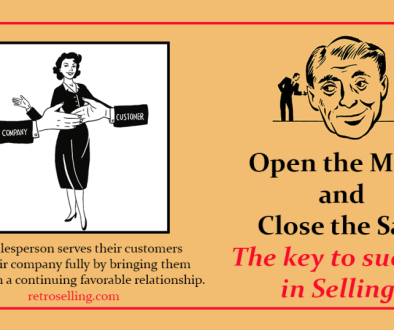7 Predictions That Would revolutionize Data-Driven Marketing Strategy
A successful data-powered marketing strategy offers explosive competitive possibilities that can transform the way companies conduct their businesses. Moreover, it can target individual customers with highly personalized messages resulting in increased sales revenue. Smart marketers have already harnessed data and other cutting-edge marketing technologies to reinvent customer engagement. Tom Chavez, Chris O’Hara, and Vivek Vaidya, in their ground-breaking book “Data-driven”, make seven forecasts in the data-driven marketing world. It gives us a perspective on where this revolution would lead in the next few years.
1) Artificial intelligence reduces scut work and makes marketing more strategic

In an AI-enabled business, the tools that we use are surfacing possibilities and suggesting the next right action. This in turn enables the sales personnel to go out there to sell, service, and support customers. This is so much better than annotating every move like some traditional salespeople do. When marketers can anticipate issues, seize opportunities, and prevent problems, then they are bound to spend less time firefighting. As a result they can also save precious times.
2) Data pipelining becomes a durable differentiator
Data pipelining is the ability to capture, connect, and synchronize consumer data vertically in a manner that ensures data sets do not operate in a silo but as a single logical entity. In other words, if one piece of hardware or software crashes, then the others absorb the shock gracefully and are up and running instantly. It represents a significant change from legacy methods where the IT department took large systems offline for many days for reconfiguration. On the other hand, an adequately architected data pipeline ensures real-time decision making is possible to give out the most accurate and relevant data.
3) Consumer IoT encircles CRM
 When consumers interact with gadgets, the technology is throwing off precious data almost every second, constituting a new data fabric. The novel ecosystem involves not just laptops and mobile phones but also music players, televisions, thermostats, health monitors, refrigerators, and even coffee makers. This symphony of touchpoints is collectively called the Internet of Things. Therefore, data-driven companies seeking to earn the attention of target customers are starting to engage with their target market across this entire fabric.
When consumers interact with gadgets, the technology is throwing off precious data almost every second, constituting a new data fabric. The novel ecosystem involves not just laptops and mobile phones but also music players, televisions, thermostats, health monitors, refrigerators, and even coffee makers. This symphony of touchpoints is collectively called the Internet of Things. Therefore, data-driven companies seeking to earn the attention of target customers are starting to engage with their target market across this entire fabric.
4) Content management gets blown up, put back together and cloudified
Digital experiences and consumption of content generate data. As a result, content management systems or CMSs emerged to automate the creation of corporate websites. But they missed the business model transition and continued peddling packaged software. Today most companies operate a mix of home-grown systems with components from external providers. However, such CMS comes with its inefficiencies and hazards. Currently, there are no software alternatives to fill the gap. Future CMSs will evolve from delivering static media assets to AI-enabled data-driven content for high consumer engagement.
5) The all-in-all intelligent marketing hub emerges
 A smart marketing hub or IMH will come int being that will make every consumer interaction personal, perfect, and in real-time. It will not perform this personalization in individual silos but will transmit directions to any external system, including digital content, mobile, social, video, virtual reality, gaming, etc. It works by tagging every touchpoint with a code that sends information and receives instructions. Over time IMH would move to more sophisticated guidance based on context.
A smart marketing hub or IMH will come int being that will make every consumer interaction personal, perfect, and in real-time. It will not perform this personalization in individual silos but will transmit directions to any external system, including digital content, mobile, social, video, virtual reality, gaming, etc. It works by tagging every touchpoint with a code that sends information and receives instructions. Over time IMH would move to more sophisticated guidance based on context.
6) An open-ID alternative will take root, bringing balance to the force
Identity management is in the center of data-driven marketing. Currently, the ability of Facebook-Google duopoly to enjoy the most profound footprint for managing consumer identity gives them immense power. The only way to negate it is for other market players or a new provider to come into existence. Perhaps, as the natural functioning of market forces, a neutral, non-advertising, trusted alternative to Google-Facebook duopoly for managing consumer identity might come by in the next few years.
7) Consumer direct-data-sharing for dollars powered by blockchain emerges
Consumers are on the cusp of taking control of their data. They are flocking to tools that enable them to share personal details on their terms. The new consumer-centric mindset is an inversion of today’s advertising model where individuals, not corporations, store their data and accept payments for the right to access it only when you decide it and that too for specified reasons. Blockchain’s basic design equips it to address the question of consumer data control. It holds the promise of enabling peer-to-peer, real-time, and secure exchanges of personal data.
Tom Chavez
Tom Chavez is the founder and CEO of Superset Inc., a venture studio that founds, funds and builds technology companies. He is a serial tech entrepreneur who has spent the last 20 years developing new technologies for data, analytics, and AI. He was also CEO and co-founder of Krux, the data management platform acquired by Salesforce in 2016, which is now the technical backbone of Salesforce Marketing Cloud.
Chris O’Hara
Chris O’Hara’s monthly “Managing the Data” AdExchanger column and Annual Econsultancy whitepapers on programmatic media, data management, mobile advertising, and media management are widely popular throughout the ad technology, media, and agency industries. He joined Krux to build and lead its marketer data practice.
Vivek Vaidya
Vivek Vaidya is a serial tech entrepreneur who has spent the last 25 years building industry-leading technologies in enterprise software, data management, analytics, and machine learning. In his most recent role as CTO of Salesforce Marketing Cloud, he led and managed the engineering teams for all Salesforce Marketing Cloud products.




